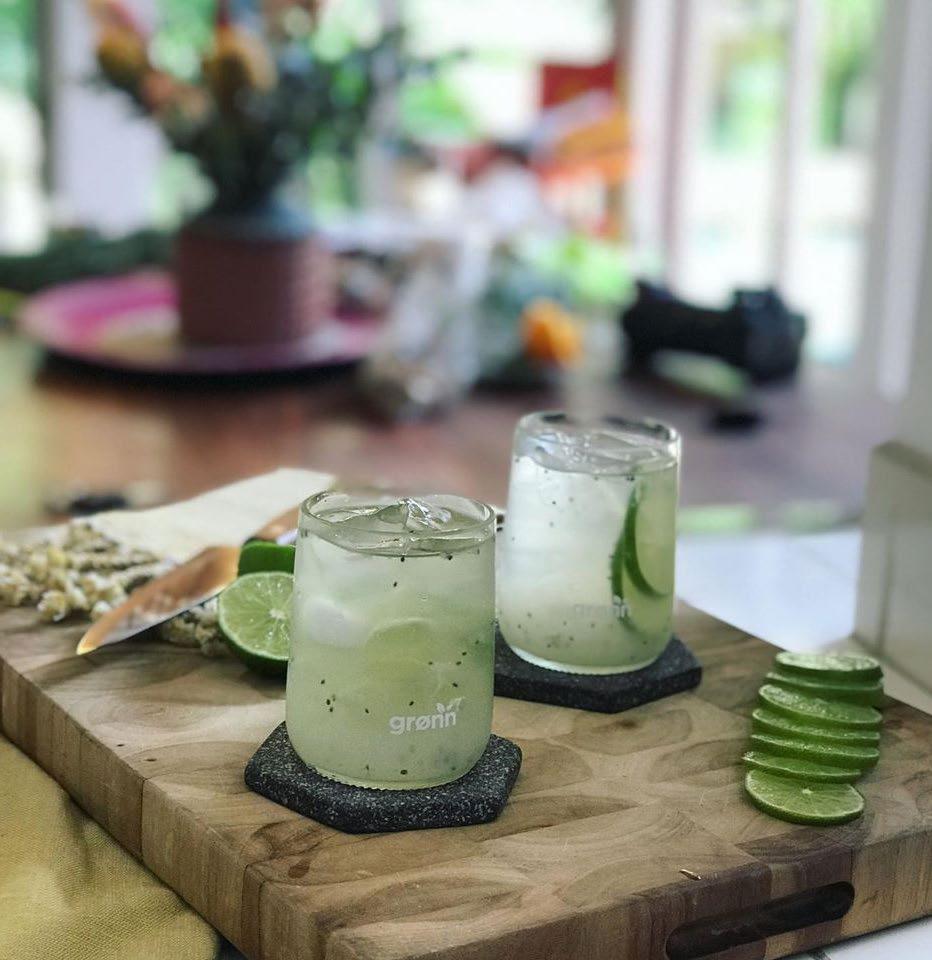
6 minute read
Emprendimiento sostenible
Tradicionalmente las compañías se han enfocado únicamente en generar beneficios económicos. Por años, las escuelas de negocios han profesionalizado a sus estudiantes en satisfacer las necesidades del mercado, a través de una solución que tenga un retorno financiero significativo para los accionistas.
Debido a que, entre otras cosas, este enfoque corto placista e individual limita nuestras posibilidades de sobrevivencia como especie y sociedad; existen cada vez más compañías que se preguntan cómo generar un retorno económico a la vez que tienen un efecto positivo en el ambiente y la sociedad.
Advertisement
El término sostenibilidad implica una visión de largo plazo que incorpora tres ejes: el económico, el ambiental y el social. Decir “económicamente o ambientalmente sostenible” es erróneo porque la sostenibilidad requiere un pensamiento sistémico que tiene una visión de futuro.

Con este enfoque, la empresa se cuestiona los efectos que a largo plazo puede tener un producto o servicio económicamente rentable en la sociedad y el ambiente o bien, las consecuencias que una decisión a favor de un recurso natural puede tener en la economía y la sociedad. El objetivo de esto es encontrar balance, hacer el menor daño posible y heredarle a los que vienen un mejor planeta con una sociedad más próspera y feliz.
Aunque hace años esto parecía utópico, cada vez existen más compañías que demuestran que es “buen negocio ser buen negocio”. Además existen empresas de impacto que se proponen solucionar problemáticas a través de la fuerza del mercado. Un ejemplo de esta categoría de negocios son las Benefit Corporations (BCorps), quienes tienen el propósito de no solo ser las mejores empresas del mundo sino también las mejores para el mundo. Con esta visión, las compañías pueden ganar dinero mientras mejoran las condiciones del planeta y las personas.
Karen Wantland Directora estrategia3

realidad, los negocios son el único mecanismo en el planeta, lo suficientemente poderosos para producir los cambios necesarios que reviertan la degradación ambiental y social. Ben & Jerry´s, una de las primeras empresas certificadas como B Corp, es una compañía “activista” que a través del mercado ha logrado impulsar los temas en los que cree.
“Ser el cambio que deseas ver en el mundo” es una frase celebre de Gandhi que aplica también a las compañías. Si queremos reducir el tránsito, promovamos esquemas con flexibilidad de horario; si deseamos mejorar la salud, desarrollemos productos más nutritivos. “Walk the talk” una frase que también se usa habitualmente para que exista coherencia entre lo que decimos y hacemos.
¿A qué mundo le apostamos en el largo plazo? DHL por ejemplo, tiene cinco escenarios, algunos muy pesimistas y otros más alentadores pero todos coinciden en que es importante agregar valor ambiental, social y económico. El tema ya no solo se trata de ser “el mejor ciudadano corporativo” sino de contribuir a las causas que aquejan nuestro mundo.
De ahí surgen empresas guatemaltecas como Fogliasana que cultiva a través de un sistema hidropónico, Ecofiltro que da acceso a agua purificada
en comunidades remotas, Gron que utiliza reutiliza botellas de vidrio para hacer sus productos o Mai We Care que diseña ropa para que las personas que están recibiendo algún tratamiento médico se sientan más cómodas; todas trabajando por una causa mayor que la económica que les genera rentabilidad. El tema ya no es qué hago sino si lo que hago es significativo y agrega valor en el largo plazo. Es decir, analizar si mi producto o servicio resuelve o aumenta algún reto social, económico o ambiental. Si soy parte del problema o de la solución.
Para identificar negocios que vayan más allá del valor económico, los emprendedores pueden utilizar el BCANVAS, una adaptación de la herramienta tradicional que integra un propósito mayor que el económico. Para medir lo que están haciendo las empresas pueden utilizar gratuitamente la evaluación que se encuentra en la página bimpactassessment. net.

Sustainable Entrepreneurship

Traditionally, companies have focused solely on generating economic benefits. For years, business schools have professionalized their students in satisfying the market’s needs, through a solution that has a meaningful financial revenue for the shareholders.
Because of, among other things, this short-term accommodation and individual approach limits our survival possibilities, both as a species and as a society. Every day there are more companies that wonder how to generate an economic revenue that can have a positive effect in the environment and in society.
The term sustainability involves a long-term perspective, that incorporates three axes: the economical, the environmental and the social. To say that something is “economically or environmentally sustainable” is wrong because sustainability requires a systematic way of thinking with a vision for the future.
With this approach, instead of ignoring the consequences of business decisions on the economy and the environment, companies question the long-term effects that a product or service could have on society and the environment, despite potential financial profitability. The objective of this is to find a balance, to create the least possible damage and to pass down a healthier planet with a happier and more prosperous society for generations to come.
Even though this might seem unrealistic, there are more and more companies demonstrating that “it’s good business being a good business”. Moreover, there are impact companies that aim to solve this problem through the strength of the market. An example of this business category is the Benefit Corporations (BCorps), who aim to not only be the best companies in the world, but also the best for the world. With this perspective, companies can earn money while they improve the planet and people’s conditions.
Recently, a member of the Board of Directors of Ben & Jerry’s, an ice-cream company that Unilever acquired, visited [the country], and commented that, in fact, businesses are the only mechanism in the planet powerful enough to generate the necessary changes that can revert environmental and social deterioration. Ben & Jerry´s, one of the first b Corp certified companies, is an “activist” company that, through the market, has managed to promote the issues in which it believes are good for the world.
“Be the change you want to see in the world” is a famous quote from Gandhi that applies to companies as well. If we want to reduce traffic jams, let’s promote flexible schedules; if we wish to improve health, let’s develop more nutritional products. “Walk the talk” is a phrase that is commonly used to ensure coherence between what we say and do.
What world are we betting on in the long term? DHL, for example, has come up with five scenarios; some very pessimistic, and others more hopeful, but they all agree that it’s important to add on the environmental, social and economic value. The issue is not just about “being a better world citizen” anymore. It’s about helping solve the issues that are troubling our world.
Guatemalan companies such as Fogliasana, who cultivates food through a hydroponic system, Ecofiltro who provides access to purified water to remote communities, Gron who recycles glass bottles to make their products, or Mai We Care, who designs comfortable clothing for people who are receiving medical treatment; are all working for a greater cause than the economy that generates their profitability. The issue is not what we do anymore, but if what we do is meaningful and if it’s valuable in the long term. In other words, it’s analyzing if a product or service solves or increases a social, economic or environmental challenge. If it is part of the problem or the solution.
To identify businesses that go beyond the economic value, entrepreneurs can use BCANVAS, an adaptation of the traditional tool that integrates a greater purpose than the economic one. To measure what companies are doing to help, they can use the assessment found at bimpactassessment.net for free.
Fuentes










